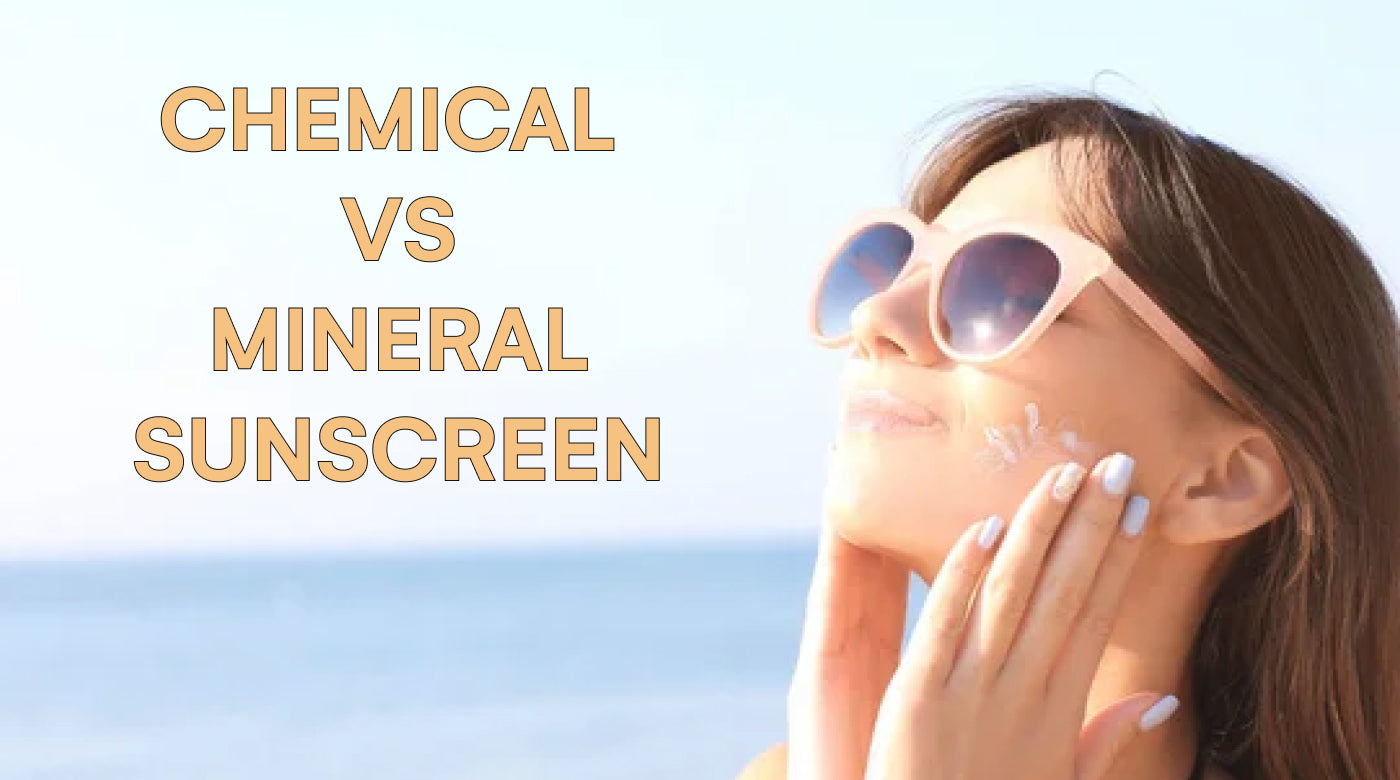We love that more people are understanding the importance of sun protection. But choosing the right sunscreen for you can be daunting. What exactly is physical sunscreen? Is a chemical sunscreen bad? Wait, there’s a hybrid option? To help guide you, we’re highlighting the features of different sunscreens for you to make the best choice for your skin type and needs.
Physical Sunscreens
Physical (mineral) sunscreens contain active ingredients like zinc oxide and titanium dioxide, which work by sitting on top of the skin and reflecting UV rays away from the body. Mineral sunscreens tend to be thicker in consistency and can be more difficult to spread and blend into the skin. We’ve probably all experienced the dreaded white cast from old school physical sunblock. Fortunately, with the latest advancements, there are mineral sunscreen options that are made with zinc nano particles that work for all skin complexions.
Physical sunscreens are effective at blocking UV rays immediately upon application and contain ingredients that are less likely to clog pores or cause irritation, making them ideal for sensitive skin. While there are options suitable for active lifestyles, most physical sunscreens rub, sweat, and rinse off more easily than chemical sunscreens. But for normal everyday use, mineral sunscreen’s protection lasts longer because they’re photostable, meaning they don’t degrade as easily when exposed to UV rays.
Chemical Sunscreens
Chemical sunscreens are made up of synthetic active ingredients like avobenzone, oxybenzone and octinoxate, which work by absorbing UV rays and converting them into heat, which is then released from the body. These sunscreens typically have a lighter consistency, making it easier to spread on your skin and blend well into all skin tones. However, they need to be applied at least 15-30 minutes before exposure to UV rays to provide protection. Chemical sunscreens are more effective at resisting water and sweat than physical sunscreens. For this reason, they are the better option if you're planning on being active or spending a lot of time in the water.
Although synthetic sunscreen ingredients work well in preventing sun damage, people with acne or sensitive skin may be more likely to experience irritation with these products. This is also true for sensitive eyes – if you want to avoid stinging eyes, your best bet might be the gentler ingredients in mineral sunscreens. Studies have also shown that octinoxate, oxybenzone, and homosalate can mimic hormones and are potential endocrine disruptors, so you may want to opt for chemical sunscreens without these ingredients.
Hybrid Sunscreens
Hybrid formulas contain both mineral and chemical sunscreen actives. They provide the broad-spectrum coverage of mineral actives and the cosmetic elegance of chemical actives. Hybrid formulas tend to be lighter and more texturally appealing than their mineral counterparts, making them a great option for those who want the best of both worlds. In addition, hybrid sunscreens tend to be more water-resistant than mineral sunscreens, making them a good choice for activities like swimming or sweating. And because they combine both mineral and chemical filters, hybrid sunscreens provide greater protection against both UVB and UVA rays. Dermatologists recommend picking a formula with at least 7 percent zinc.
So, which sunscreen is right for you? If you're looking for something quick and easy to apply with a light consistency, chemical sunscreen might be the way to go. Chemical sunscreens will also end up being more effective if you're sweating or spending a lot of time in the water. However, if you're looking for a sunscreen that's more effective at blocking UV rays immediately, with fewer chemicals and a lower risk of irritation, then physical sunscreen is a good choice. For those who can handle synthetic ingredients and would like the benefits of both chemical and physical sunscreen, you’re a good candidate for testing out hybrid formulas.
No matter which sunscreen you choose, make sure to apply generously and reapply often, especially if you're sweating or in the water.


